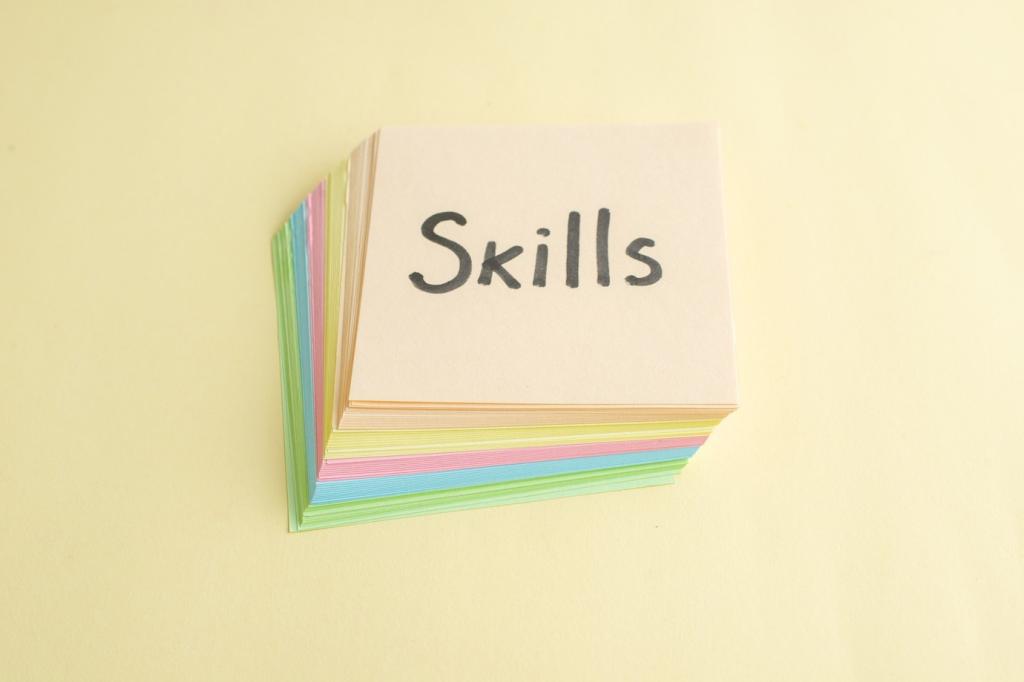Goal Setting and Achievement Strategies: Turn Intentions Into Impact



The Science of Follow-Through
Use if–then plans to bridge intention and action: “If it’s 7 a.m., then I write 200 words at the kitchen table.” Clear cues reduce hesitation. Try one if–then today and report back on how it changed your morning.
The Science of Follow-Through
WOOP—Wish, Outcome, Obstacle, Plan—turns friction into foresight. Name your biggest obstacle and decide what you’ll do when it appears. Post your WOOP plan below to help others see how planning for resistance invites progress.


Systems Beat Willpower
Habit Stacking and Environment Design
Anchor new actions to existing routines: after brewing coffee, review your top three priorities. Remove friction—keep your tools visible and ready. Comment with one item you’ll place within arm’s reach to make your next step effortless.
Timeboxing and Calendar Reality
Give important goals a calendar home. Timebox deep work and protect it like an appointment. Name the task, location, and start line. Share which block you’ll defend this week, and we’ll hold you accountable in the next post.
Weekly Review Ritual
Every week, list wins, missed promises, and one improvement. Reset priorities for the next seven days. This rhythm reduces overwhelm and highlights progress. Tell us your review day and we’ll remind you with a short, friendly checklist.
Lead and Lag Indicators
Lag indicators show results; lead indicators predict them. For writing, “articles published” lags, while “daily focused minutes” leads. Pick one lead indicator and share it below so we can help you refine your weekly target.
OKRs for Humans
Set an Objective that inspires and three measurable Key Results. Example: Objective—“Build a consistent creative habit.” KRs—“Write 5 days weekly, 600 words per session, publish 2 pieces monthly.” Post your draft OKR for friendly feedback.
Progress Journaling
A quick daily note—what moved forward, what blocked you, what you’ll try next—keeps learning continuous. Over time, patterns appear. Start tonight, and tag your first insight in the comments to encourage another reader’s start.
Mindset and Resilience
01
Growth Mindset in Practice
When something fails, ask: what skill was missing, and how will I practice it? Replace self-criticism with a plan. Share one recent setback and the specific experiment you’ll run next to convert it into momentum.
02
Anti-Perfectionism Protocol
Set a minimum viable standard and ship at eighty percent. Perfection delays feedback, which delays progress. Try a messy first draft rule for one week and report the impact on speed, stress, and creative confidence.
03
Recovery as a Strategy
High performance includes rest: focused breaks, sleep, and movement protect consistency. Schedule short recovery blocks like you schedule work. Comment with your favorite micro-recovery habit so others can borrow it for their next push.
Accountability and Community
Design a Commitment Device
Create stakes that matter—public promises, small deposits, or shared progress dashboards. Stakes should motivate, not punish. Pick one device today and declare it below; we’ll check back and celebrate your follow-through together.
Find Your Accountability Partner
Choose someone reliable, set a recurring check-in, and agree on clear deliverables. Keep reviews brief and honest. Invite a friend to join, or reply here to connect with a partner from our community of committed readers.
Share Monthly Retrospectives
At month’s end, post what worked, what surprised you, and what you’ll change. Transparency multiplies learning. Share your retrospective in the comments, and subscribe to receive a simple, printable template every month.

